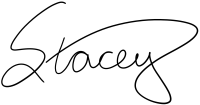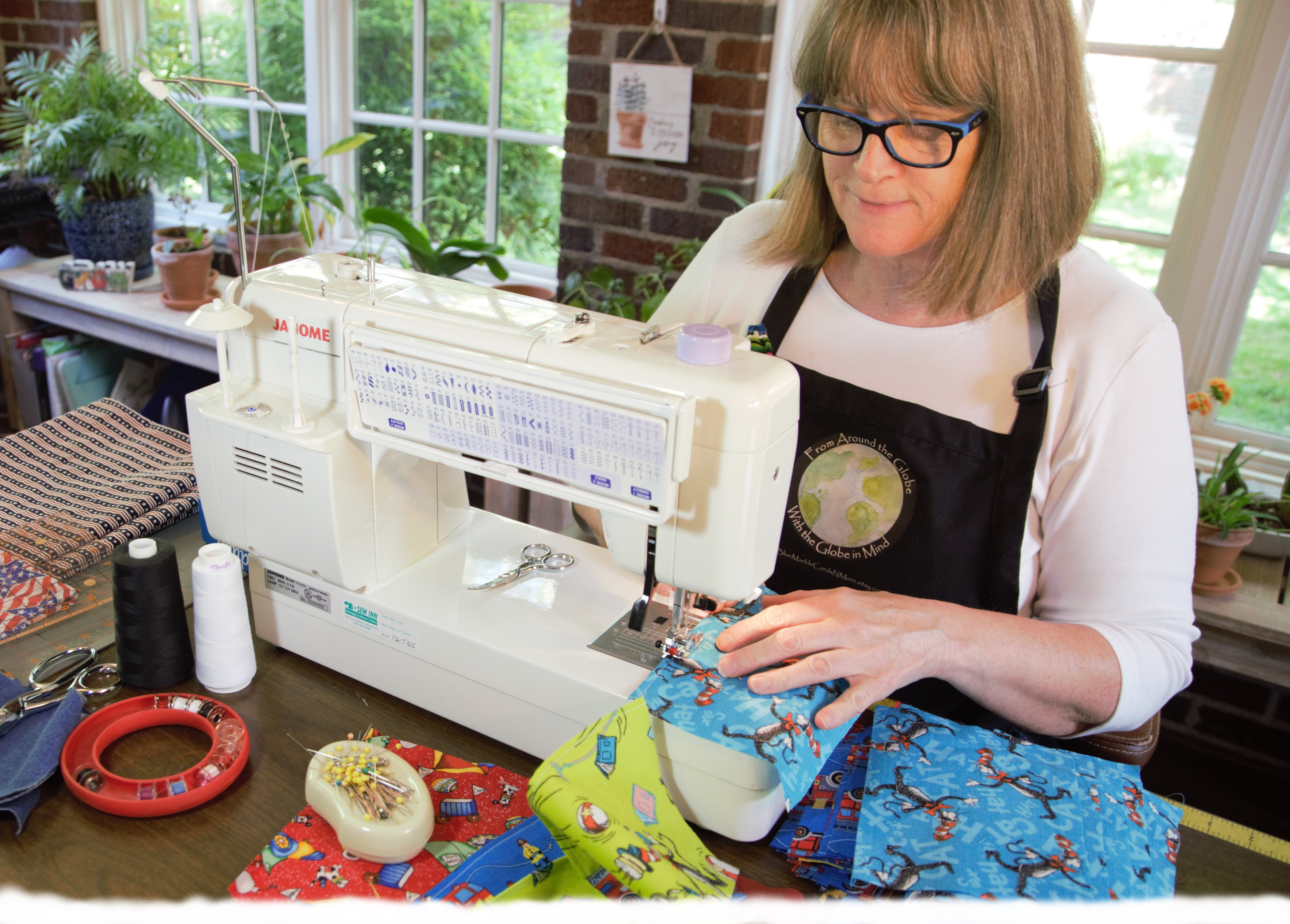Spare Change

21 April 2020 | Theme: Change | 8-Minute Read | Listen
When you saw the title of this article, you most likely thought of extra, loose coins jangling around in your pocket or purse. Fair enough—the photo I chose is intended to lead you there. But what if we shift our perspective and look at the phrase differently? Instead of “spare” as an adjective, let’s look at “spare” as a verb.
And “Change”—well, our theme this month is Change, and Sister, are we ever in the thick of Change! Each day, we are called to adapt to an ever-evolving “new normal” as people across the globe endeavor to deal with COVID-19. Not knowing what “normal” may be after the pandemic, we are tempted to beg Change to spare us.
That’s understandable. We’re all moving forward into a vast Unknown, and it can be scary. We’ve already had to change the ways we work, learn, shop, communicate, and socialize—so what’s next? Our routines have been altered so that it can be hard even to know what day it is. (I’ll admit that I misplaced my appointment calendar sometime in March—the only way I really know the date is from the menu bar on my computer!) Many of us have lost jobs or investments, bringing terrifying financial uncertainty. And then there is the very real and present danger of contracting the virus and how it might affect us or our families.
With all that, of course we want Change to spare us! But guess what? We are always moving forward into a vast Unknown. We want to think that our routines and our jobs and our wealth and our health are permanent, but of course, they are not. That’s just an illusion—a story we tell ourselves so that we don’t wake up every morning in a cold sweat, too frightened to throw back the covers to face a brave new world.
Maybe part of the problem is that Change moves at unpredictable velocities. In some periods of time, Change moves glacially, while in others, as today, Change is supersonic—occurring so rapidly that we cannot comprehend it or keep up with it.
I think of the opening chapter of The Hitchhiker’s Guide to the Galaxy in which the protagonist, Arthur Dent, looks up at the sky to see huge yellow bulldozer-UFOs that are about to clear planet Earth to make way for a new inter-galactic bypass. Somehow, he escapes the destruction at the last moment and begins his outer space travels wearing only a dressing gown and carrying a towel. One minute he’s having tea, and the next—well, everything he knows is taken away from him.
While The Hitchhiker’s Guide to the Galaxy is comic science fiction, the present pandemic feels kind of like that sometimes. Just a short time ago, we were all going about our lives as if nothing would ever change, or as if we could calculate the changes that would occur: children would grow up at fairly predictable rates, we would steadily progress toward our goals, and we could prepare for a more-or-less certain future. We clung to our routines every bit as fervently as Arthur Dent grasps his towel. But—reality check: every morning, you woke up a day older than yesterday, your goals were always just beyond your reach, and your future was never guaranteed.
And now the coronavirus pandemic, like those fictional bulldozers from outer space, has swept across the globe, clearing away the old ways to make room for. . . for what? That’s just it, isn’t it? We don’t know. So we push back with all our might, trying to keep Change at bay. Like a kid staring at an unfamiliar vegetable on her plate, we don’t know what it is, we haven’t tried it yet, but We. Don’t. Like. It. Just serve me up the Same-Old-Same-Old, thank you very much, and spare me the side of Unfamiliar.
But what would happen if we spared Change? With this meaning of “spare,” I’m thinking of a medieval fight scene where one knight has another knight groveling in the mud at the tip of his sword; at the last moment, he decides to spare his opponent. One minute, the knight is about to destroy his rival, and the next, he not only allows him to live, but gives him a hand up from the muck; the scene ends with the two armored men embracing in alliance.
We so often grapple with Change as if it is the enemy—to be avoided as long as possible, and when avoidance doesn’t work, to be fought. But what would it be like if we spared Change? What if we stopped struggling against it and instead, extended a hand of fellowship, saying, “Welcome—I know that you’re always by my side anyway, so let’s do this together”? What if we embraced Change for all it can teach us—for all we can learn about ourselves in its presence?
Change is neither ally nor foe—it just is. It’s the thoughts and beliefs we hold about Change that cause us to suffer—not Change itself. Rosabeth Moss Kanter writes about the natural aversion to Change in the Harvard Business Review, explaining several thoughts and beliefs that drive our common dislike of it. While her article is focused on workplace innovation, much of it is applicable to this pandemic.
First, she says, is a feeling that we have lost control: “Change interferes with autonomy and can make people feel that they’ve lost control over their territory.” While control is actually an illusion, too, we do want to have autonomy and be able to exercise choices. Some choices aren’t entirely logical, as in stockpiling goods, but at least we are exerting our autonomy.
Next, Kanter says that excess uncertainty can make Change feel “like walking off a cliff blindfolded.” Our gut reaction is to say no rather than submit to freefalling through a vast, ambiguous abyss. So we resist in a myriad of ways, from ignoring or minimizing the threat, to contracting around our personal wants or needs, to refusing to comply with authorities. Yelling “No, no, no!” like a toddler feels empowering, and yet, our gut reaction is likely making us far less safe and secure than accepting Change and making discerning choices.
When Change occurs, we must shift our old habits, which can be disquieting. “Routines become automatic, but change jolts us into consciousness, sometimes in uncomfortable ways,” says Kanter. The pandemic has caused many to become conscious in a way that can be uncomfortable. With many of our prior entertainments and distractions no longer available, we have more time to sit with our own thoughts—that can be terrifying to many people! Those who had a meditation practice before the pandemic had already learned to sit quietly with their thoughts; now others are awakening to the need for such a practice.
Maybe part of our resistance to Change is that we doubt ourselves: Am I up to the challenge? And if I change, who am I? Am I capable of doing the work that Change may necessitate? Is it going to hurt?
Kanter concludes her article by advising business leaders to diagnose the sources of resistance to change and then “minimize discomfort”—and here is where I beg to differ. Instead of minimizing our own discomfort, this is a time to explore our discomfort. To walk through it and know it. To learn about ourselves and our untapped capacities.
If you don’t already have one, Dear Reader, I invite you to begin a daily practice that allows you to quiet yourself so that you can sit with your own thoughts. Walk through the discomfort, because that’s how you find your true core—your equilibrium. And finding balance within yourself is the key to being comfortable with Change.
Until next time,

Resources:
Adams, Douglas. The Hitchhiker’s Guide to the Galaxy. New York: Pocket Books, 1981.
Kanter, Rosabeth Moss. “Ten Reasons People Resist Change.” Harvard Business Review, 25 September 2012. https://hbr.org/2012/09/ten-reasons-people-resist-chang
If you enjoyed this article,
please share on social media!
NEXT ARTICLE

Mask Making
28 April 2020 | Theme: Change | 6-Minute Read
For several weeks now, I’ve spent significant time making face masks. After my next door neighbor gave my daughters and me each a mask she had made, my daughter suggested that we, too, make and give away fabric masks to help prevent the spread of COVID-19. We pulled out my fabric stash . . .